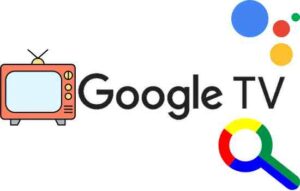Anúncios
Education has been undergoing a remarkable transformation in recent years, largely due to advancements in technology. One particular area that has played a pivotal role in this transformation is the development of educational apps. These innovative tools have revolutionized the learning process, providing students with interactive and personalized learning experiences. In this blog post, we will explore the significant role that educational apps play in modern education and how they are reshaping the learning landscape for students worldwide.
Personalized Learning:
One of the key advantages of educational apps is their ability to offer personalized learning experiences. These apps leverage sophisticated algorithms and data analytics to create tailored learning paths for individual students. By assessing students’ strengths, weaknesses, and learning styles, educational apps can provide targeted content, exercises, and assessments that address their specific needs. This personalized approach enables students to learn at their own pace, ensuring a deeper understanding of the subject matter and facilitating greater knowledge retention.
Anúncios
Engaging and Interactive Content:
Gone are the days of static textbooks and one-size-fits-all lectures. Educational apps offer a wealth of engaging and interactive content that captures students’ attention and promotes active participation. These apps incorporate features such as gamification, videos, animations, quizzes, and simulations to make the learning process more enjoyable and immersive. By turning learning into a dynamic and interactive experience, educational apps enhance student engagement, motivation, and overall comprehension of the material.
Accessible Anytime, Anywhere:
The advent of educational apps has made learning accessible anytime, anywhere. With the ubiquity of smartphones and tablets, students can now access educational content on-the-go. Whether they are at home, on a bus, or in a library, educational apps allow students to continue their learning journey outside of traditional classroom settings. This flexibility not only accommodates different learning styles but also promotes lifelong learning and enables students to take ownership of their education.
Enhanced Collaboration and Communication:
Educational apps also facilitate collaboration and communication among students and educators. Many apps offer features that allow students to connect, share ideas, and collaborate on projects. This fosters a sense of community and encourages peer-to-peer learning, promoting the development of teamwork, communication, and critical thinking skills. Additionally, educational apps provide direct channels of communication between students and teachers, enabling real-time feedback, clarification of doubts, and personalized guidance.
Assessment and Progress Tracking:
Educational apps provide valuable tools for assessment and progress tracking. These apps offer quizzes, tests, and interactive exercises that allow students to gauge their understanding of the material. By providing immediate feedback and explanations, educational apps help students identify areas for improvement and reinforce their learning. Furthermore, educators can monitor students’ progress, track their performance, and identify specific areas where additional support may be needed, thus enabling targeted intervention and support.
Educational apps have transformed the landscape of modern education, offering personalized learning experiences, interactive content, accessibility, enhanced collaboration, and comprehensive assessment tools. As technology continues to advance, these apps will play an increasingly vital role in facilitating student-centered and engaging learning environments. By harnessing the power of educational apps, educators can empower students to take control of their learning journey, fostering a love for learning and equipping them with the skills necessary to thrive in the digital age.


